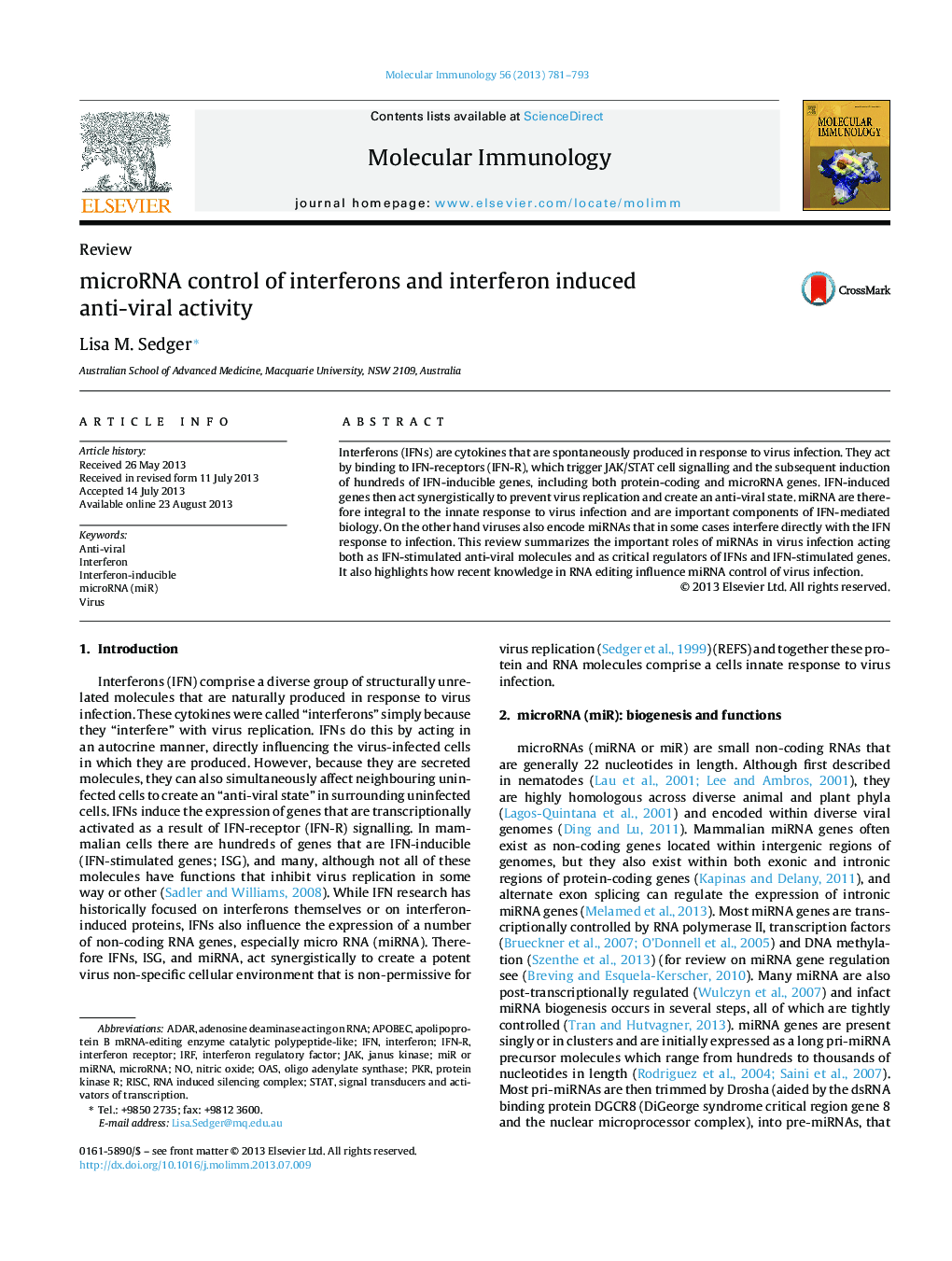| Article ID | Journal | Published Year | Pages | File Type |
|---|---|---|---|---|
| 5916921 | Molecular Immunology | 2013 | 13 Pages |
Abstract
Interferons (IFNs) are cytokines that are spontaneously produced in response to virus infection. They act by binding to IFN-receptors (IFN-R), which trigger JAK/STAT cell signalling and the subsequent induction of hundreds of IFN-inducible genes, including both protein-coding and microRNA genes. IFN-induced genes then act synergistically to prevent virus replication and create an anti-viral state. miRNA are therefore integral to the innate response to virus infection and are important components of IFN-mediated biology. On the other hand viruses also encode miRNAs that in some cases interfere directly with the IFN response to infection. This review summarizes the important roles of miRNAs in virus infection acting both as IFN-stimulated anti-viral molecules and as critical regulators of IFNs and IFN-stimulated genes. It also highlights how recent knowledge in RNA editing influence miRNA control of virus infection.
Keywords
Related Topics
Life Sciences
Biochemistry, Genetics and Molecular Biology
Molecular Biology
Authors
Lisa M. Sedger,
